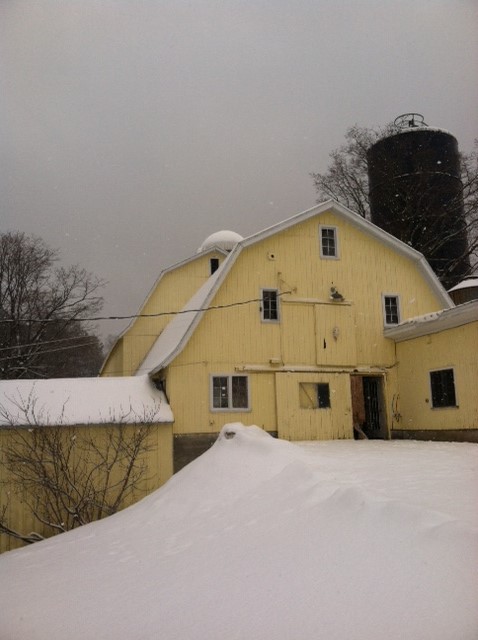There has been a rash of books published lately about farming. It seems there is tremendous interest in farming stories, especially if you’ve just left your high-paying city job and bought a small farm in the country. While I’ve enjoyed a few of these memoirs, I’m also always a little dismayed at the way the authors gloss over the messier side of farming—namely, death, loss and hardship. The story then rings hollow for me and doesn’t even begin to touch on what I consider to be at the very core of farming: A profound understanding of loss and deep appreciation for what really matters in life.
It’s not like there aren’t true, messy stories to be told. My husband’s grandfather—a rancher in Minnesota—lost the tops of his ears to skin cancer because all the man ever wore for protection was a seed cap. When my husband split his finger in our wood splitter, our neighbor Vera (with a wink and a grin) very helpfully pointed out that he’d “never forget how to use that wood splitter again”. I accidentally poisoned our donkey by feeding him what turned out to be Japanese yews. When our neighbor Steve was struck in the face by the kicker on his hay baler, he ran to the house and asked his sister-in-law to “quick patch him up.” He figured his face could be dealt with later—they had to finish baling before the rain came. And when we asked our neighbor Bob if we could use his jack to shore up our collapsing garage, he asked if we needed the snowmobile helmet, too? After we gave him a quizzical look, he told us the story of being knocked out cold when the jack had kicked out and whacked him in the head. Waking up in a pool of blood, he decided he’d never use the jack again without a snowmobile helmet on. We really couldn’t argue with him.
Truth is—farming is messy. As a farmer, you develop an intimate relationship with loss. Where you have life, you also have death; it is impossible to experience one without the other. We try to keep losses to a minimum, but often Mother Nature has other plans. Within the confines of this harsh simplicity, the farmer tries to find a healthy balance. Unnecessary losses are to be avoided, and we embrace the life side of the equation. Any attempt to describe it otherwise is to gloss over the reality; anyone trying to convince you otherwise is trying to sell you something.
Furthermore, farming is one of the most dangerous occupations in the country. According to the Bureau of Labor Statistics, agriculture averages almost 40 fatalities per 100,000 farmers per year. Historically, farming ranks as the 5th most dangerous job in America, more deadly than firefighting, police work, and electrical power-line installers, but less dangerous than fisheries, logging and steel workers. The vast majority of the fatalities are vehicular in nature. Dealing with heavy machinery, working long hours—often alone—and simple distractions can be a deadly combination.
Our Mohawk Valley farming community lost one of its own shortly before Christmas. A neighbor on the other side of our hill was using his tractor to clear scrap metal out of a shed when he was crushed to death. The tractor had lurched forward, bucket pinning the farmer. The neighbors that passed by and saw the tractor parked in that odd spot could not have imagined what had happened.
Although my husband and I knew him and his wife only in passing—we waved when we met on the road, we know their cars and equipment by sight—we were still deeply saddened by this loss. Our neighboring farmers, too, were clearly shaken by this accident—the result of a benign, yet common activity. This was something that could happen to anyone, at any time. And the loss didn’t stop there: the dairy herd was shipped the very next morning, perhaps signaling the end of their farm. This is as “messy” as farming gets, yet is a reality that plays itself over and over for farmers everywhere. Maybe someday someone will write a book about that.
